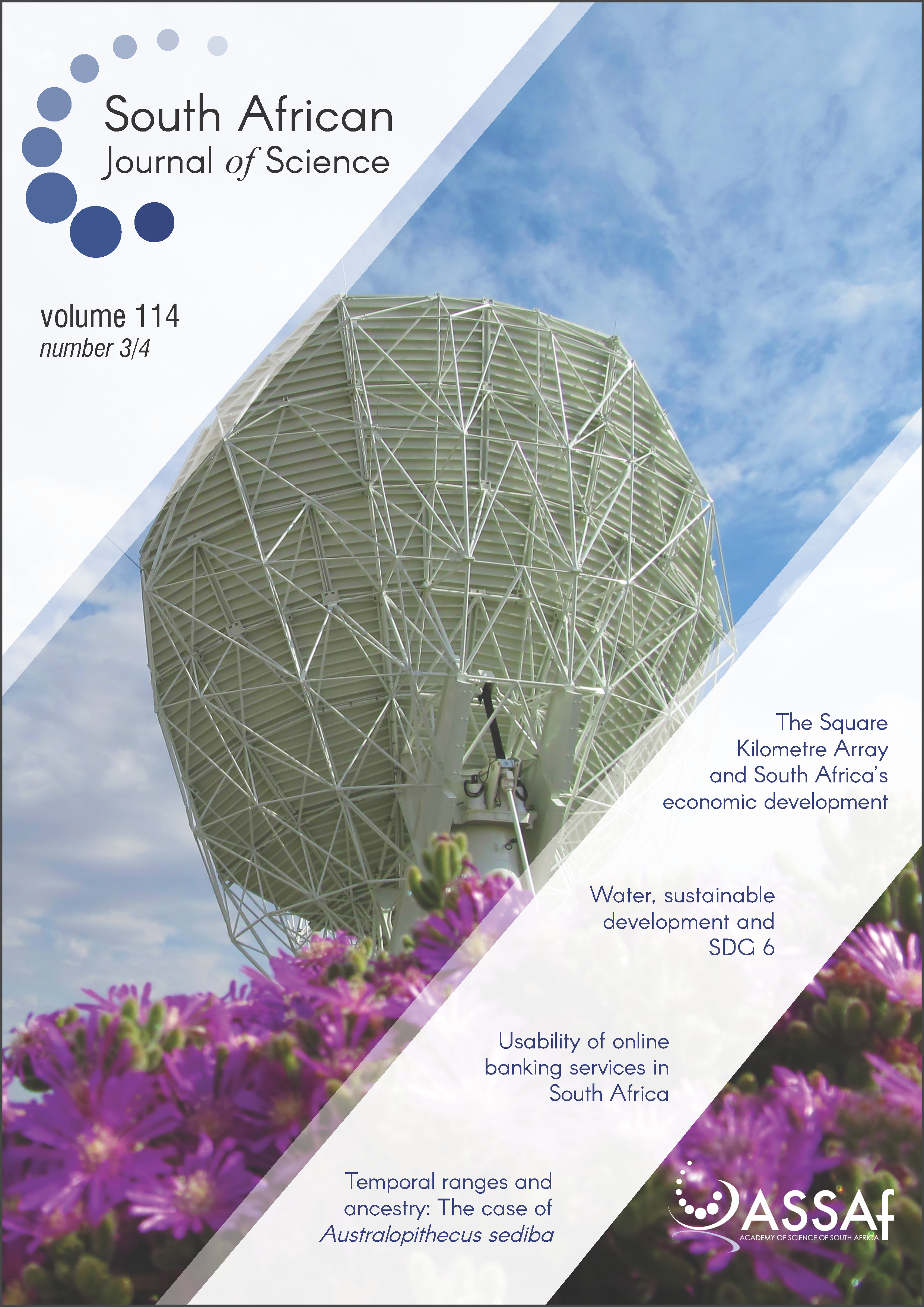Water for sustainable development in the Berg Water Management Area, South Africa
DOI:
https://doi.org/10.17159/sajs.2018/20170134Keywords:
SDGs, water-dependent jobs, Berg WMA, water-use efficiencyAbstract
Water is fundamental to human well-being and economic growth. Measuring how water contributes to sustainable development is an important aspect of the United Nations Sustainable Development Goal (SDG) 6, ‘Water and sanitation for all’. This importance is especially significant for water-scarce developing countries such as South Africa. Appropriate indicators can support decision-making and highlight key issues on inequality, unemployment and sustainability. In this paper, additional indicators for SDG 6.4 on water-use efficiency are proposed that focus on how individuals and households benefit, both directly and indirectly, from the allocations and use of water resources. The Berg Water Management Area (WMA) in the southwest corner of South Africa is used as a case study to illustrate the results. Residential per capita water use and municipal water losses were determined for all towns in the area. Figures for jobs and income per unit of water use were calculated for the heavily water-dependent industries, namely, agriculture, agriprocessing, freshwater aquaculture, mining and steel processing. This approach to measuring the socio-economic benefits of water use are relevant for other countries seeking to measure the role that water plays in achieving inclusive sustainable development, and could be included in the final SDG 6 indicator suite.
Significance:
- New measures of water-use efficiency based on jobs and income are proposed.
- New indicators are proposed for SDG 6.
- Water use, jobs and annual income are estimated for all heavily water-dependent sectors in the Berg WMA.
Downloads
Published
Issue
Section
License

All articles are published under a Creative Commons Attribution 4.0 International Licence
Copyright is retained by the authors. Readers are welcome to reproduce, share and adapt the content without permission provided the source is attributed.
Disclaimer: The publisher and editors accept no responsibility for statements made by the authors
How to Cite
- Abstract 1714
- PDF 1563
- EPUB 216
- XML 273
- Supplementary Material 301













.png)